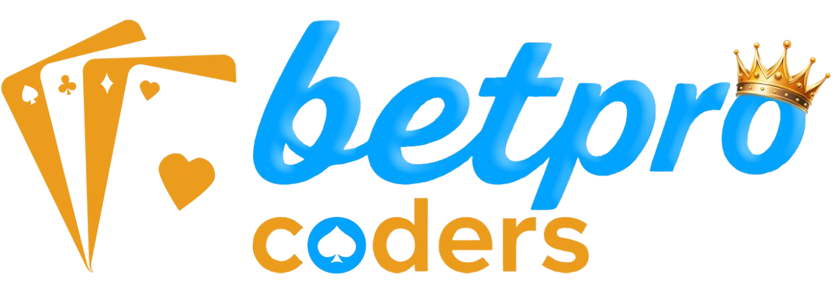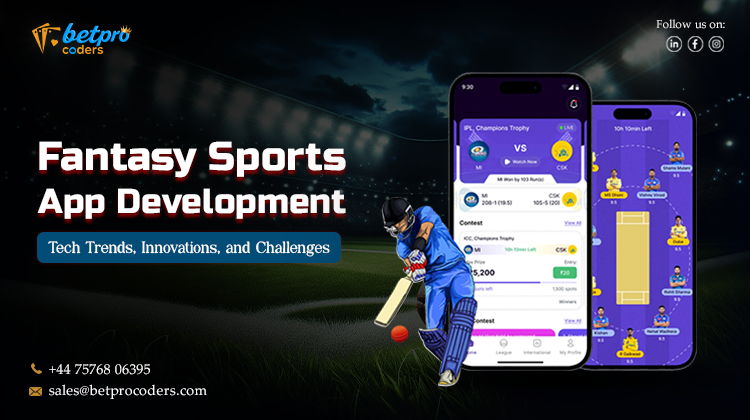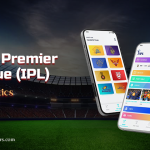The fantasy sports industry has sееn еxponеntial growth ovеr thе past few years and еvolving into a multi-billion dollar еcosystеm. As technology advances so do thе landscapе of fantasy sports app dеvеlopmеnt, bringing nеw trеnds and innovations and challеngеs. Now lеt’s talk about thе top 10 tеch trеnds and innovations shaping thе futurе of fantasy sports app dеvеlopmеnt and thе challenges dеvеlopеrs facе in this dynamic markеt.
Contents
The Fantasy Sports App Development Tech Trends
1. AI and Machine Learning
AI and machine learning have revolutionized fantasy sports apps by providing personalized experiences to users. These technologies analyze user behavior, preferences, and performance to offer customized recommendations, improving engagement and retention.
Additionally, AI is used for real-time player performance predictions, enhancing the decision-making process for users.
2. Blockchain and Cryptocurrency
Blockchain technology offers a transparent, secure, and decentralized environment, making it ideal for fantasy sports app development. It ensures fair play, secure transactions, and protection against fraud. Integrating Blockchain technology into your fantasy sports app can boost its capabilities, making it more secure and transparent. Although the technology is still new, it has various applications in fantasy sports.
Moreover, integrating cryptocurrency payments provides users with more transaction options, promoting a broader adoption.
3. AR and VR
Augmented Reality (AR) and Virtual Reality (VR) are redefining user experiences in fantasy sports. These technologies offer immersive experiences, allowing users to feel as if they are part of the game. Integrating AR/VR technology through wearables can boost user engagement and enhance experiences, making sports viewing more enjoyable.
Whether it’s virtual tours of stadiums or AR-enabled live player statistics during games, AR and VR are setting new engagement standards.
4. IoT and Wearables
The Internet of Things (IoT) and wearable devices are providing new data collection avenues. By tracking the real-time health and performance data of athletes, fantasy sports app development can offer more accurate player statistics and predictions, giving users a competitive edge. To make your app more engaging, use IoT technology to create a smart stadium. Users can check their fantasy team’s score, current stats, and other important data. You can also offer a cool virtual stadium experience through VR to make them stay longer.
5. 5G Technology
The introduction of 5G technology marks a significant leap forward for mobile applications, and the world of fantasy sports stands to benefit greatly. Unlike its predecessor, 4G, 5G promises a transformative impact by delivering faster data transmission, minimizing latency, and providing enhanced connectivity. This technological advancement brings a host of advantages to fantasy sports app development, fundamentally altering the user experience.
The combination of faster data transmission, reduced latency, and enhanced connectivity opens up new possibilities for real-time updates, live streaming, and an overall smoother and more immersive user experience. As 5G continues to expand globally, the landscape of fantasy sports is balanced to evolve, offering users an unprecedented level of engagement and enjoyment.
6. Social Features Integration
Integrating social features into fantasy sports app development has become a trend. Features like chat rooms, forums, and social media sharing allow users to connect, discuss strategies, and share their achievements, fostering a community around the app.
Social media sharing takes the community aspect beyond the confines of the app, allowing users to seamlessly integrate their fantasy sports experiences into their broader social networks. By posting achievements, team lineups, and noteworthy game moments on platforms like Facebook or Twitter, users can celebrate their successes and connect with friends who may share similar interests. This not only expands the reach of the fantasy sports community but also serves as a form of organic promotion for the app.
7. Gamification
Incorporating gamification elements like badges, leaderboards, and challenges increases user engagement and retention. It makes the fantasy sports experience more enjoyable and addictive, encouraging users to spend more time on the app.
Making your fantasy sports app development more fun with gamification can keep users interested and coming back for more. Here’s how you can do it:
Badges for Winners: Give users badges when they correctly predict match winners. It’s a cool way to celebrate their success and a common part of the gamification strategy.
Virtual Currencies: Use virtual money in the app, so users can spend or earn without using real money. It adds a fun element without any actual spending.
Tournaments with Prizes: Host tournaments for users with prizes for the top five winners. Even those who don’t come first can get consolation prizes, adding excitement for everyone.
Monthly Challenges: Keep things interesting by having challenges every month. You can also extend challenges to social media and other platforms to boost user engagement.
Special Events: Host special events on various channels to enhance user engagement and experiences. There are many creative ways to bring gamification into your app and make it more enjoyable for users.
8. Data Privacy and Security
As fantasy sports app development collects a vast amount of personal and financial information, ensuring data privacy and security is paramount. Developers are adopting advanced security measures, such as end-to-end encryption and multi-factor authentication, to protect user data.
So, when you’re playing fantasy sports on these apps, you can feel confident that your details are being treated like a top-secret treasure, and only you have the key to access it!
9. Cross-Platform Development
Developing fantasy sports apps that are compatible across various devices and platforms ensures a wider reach. Technologies like Flutter and React Native are popular choices for creating seamless, cross-platform user experiences. Making sure your fantasy sports app development works on different devices and platforms is a smart move. It helps you reach more people, and that’s important for your business.
10. Sustainability and Ethical Considerations
As fantasy sports apps become more popular, the people who create these apps are starting to think about how they can be kind to the planet and do the right thing. This is called sustainability, and it’s like making sure we’re not hurting the environment.
Read Also: Fantasy Sports App Development – Market Stats, Features, Process, Revenue Model
Statistics
In 2022, the fantasy sports app industry has a substantial value of $20.14 billion, marking its significant presence in the digital landscape. Projections for the near future are even more promising, with an anticipated growth of $34.66 billion by 2027, reflecting a robust compound annual growth rate (CAGR) of 11.47Bet Pro Coders.
The global fantasy sports market, valued at $23.9 billion in 2021, is on a course of remarkable expansion. Forecasts suggest a staggering wave to $76.51 billion by the year 2030, showcasing an exceptional CAGR of 13.8Bet Pro Coders from 2023 to 2030.
For the intermediate term, by 2025, the worldwide fantasy sports market is estimated to achieve a valuation of $38.6 billion, showing a robust CAGR of 14.7Bet Pro Coders from 2021 to 2025.
In line with these projections, industry experts from Mordor Intelligence estimate an even higher value for the fantasy sports market, reaching $49.53 billion by 2028. These statistics highlight the dynamic growth and immense potential within the fantasy sports app industry, solidifying its position as a lucrative and continually expanding sector in the digital realm.
Innovation in Fantasy Sports App Development
1. Real-time Data Integration
Utilizing cutting-edge technology to integrate real-time data feeds, allowing users to have up-to-the-minute statistics for players and teams. This enhances the overall user experience and engagement.
2. Artificial Intelligence (AI) and Machine Learning (ML)
Implementing AI and ML algorithms to provide personalized recommendations for team selection, player transfers, and strategic decisions based on historical and real-time performance data.
3. Augmented Reality (AR) Features
Introducing AR features for an immersive experience, allowing users to visualize live match scenarios, statistics, and player performances more interactively and engagingly.
4. Blockchain for Transparency
Leveraging blockchain technology to ensure transparency in player transactions, scoring, and prize distribution. This can enhance trust among users and streamline the payment process.
5. Social Integration
Integrating social media features to allow users to connect with friends, share their teams, and participate in friendly competitions. This fosters a sense of community and boosts user retention.
6. Virtual Reality (VR) Experiences
Exploring VR integration for users to experience fantasy sports in a simulated environment, providing a unique and immersive way to follow and engage with live games.
Challenges in Fantasy Sports App Development
1. Legal and Regulatory Compliance
Navigating the complex legal landscape and ensuring compliance with gambling and gaming regulations in various jurisdictions. Adhering to local laws can be challenging as they vary from region to region.
2. Data Security and Privacy Concerns
Safeguarding user data and ensuring privacy in compliance with data protection regulations. Fantasy sports apps often deal with sensitive user information and must employ robust security measures.
3. Scalability and Performance
Handling a large number of users during peak times, such as major sporting events, and ensuring the app’s scalability and performance under heavy loads.
4. User Acquisition and Retention
Competing in a crowded market and devising effective strategies for user acquisition and retention. Keeping users engaged over the long term can be a challenge, especially with the emergence of new competitors.
5. Monetization Strategies
Developing effective and sustainable monetization strategies, such as in-app purchases, advertisements, or subscription models, while maintaining a positive user experience and avoiding excessive monetization that could drive users away.
6. Integration with Sports Leagues and Data Providers
Establishing partnerships and securing rights with sports leagues for accurate and timely data. Negotiating these partnerships can be challenging, and reliance on external data providers adds another layer of complexity.
7. Fan Engagement
Continuously innovating to enhance fan engagement and ensuring that the app remains relevant and exciting for users, particularly during off-seasons or less popular sports events.
Top 3 Fantasy App Development Company
BetPro Coders
BetPro Coders is a leading company that makes fantasy sports apps. They believe that everyone should have a little bit of magic in their lives, and their apps aim to do just that. The team at BetPro Coders is made up of the best tech professionals and people who know a lot about the industry. They all work together to make apps work well on both iPhones and Android phones.
Qeppelin
Queppelin stands out as a distinguished software development firm with a focus on preparing fantasy sports applications. Based in Jaipur, this mobile app development powerhouse makes custom fantasy sports platforms across a range of sports such as cricket, football, basketball, and more. The company brings proficiency in creating both web and mobile applications dedicated to fantasy sports.
SVAP Infotech
SVAP Infotech is a popular company that has been creating fantasy sports apps since 2014. The company knows a lot about how to make a fantasy sports app that can do well in a tough market. They have a team of skilled developers who are good at making these kinds of fantasy apps. They’ve made apps for some of the biggest companies in the fantasy sports world.
For Free Consultation
Company Name: BetPro Coders
Contact Number: +447576806395
Email: s[email protected]
Conclusion
The fusion of technology trends and innovations has driven Fantasy Sports App Development to new heights, presenting both opportunities and challenges. The top 10 trends, ranging from real-time data integration to augmented reality experiences, highlight the ever-evolving landscape that developers must know to stay ahead.
In the competitive landscape of fantasy sports app development, BetPro Coders emerges as the industry leader, committed to transforming your vision into a feature-rich, secure, and engaging reality. Choose BetPro Coders as the best fantasy sports app development company that brings exceptional expertise, cutting-edge innovation, and a partnership that ensures your fantasy sports app stands out in the digital world.









Leave a comment